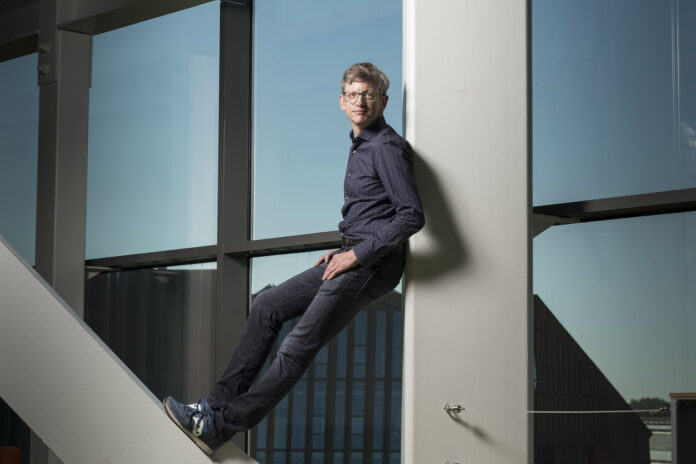Columnist Dirk-Jan Scheppers is happy to report that journalism platform ScienceGuide is safe for now. However, that’s no thanks to the UG.
I heard good news last week: ScienceGuide will continue to exist. ScienceGuide is the open and independent platform for news and opinions on higher education in the Netherlands.
If you want to read news about the UG, you can turn to UKrant. But if you’re a member of the academic community interested in what’s happening at other institutes of higher education, you’d do well to regularly take a look at this platform that publishes news on education, research, and politics.
Until recently, ScienceGuide was financed by universities of applied sciences, research universities, and educational umbrella organisations. On average, this contribution ran to 5,000 euros per institute. Peanuts. But over the past few years, various institutes withdrew their contributions, which could spell the end for ScienceGuide.
ScienceGuide said they encountered ‘fierce resistance from university boards, who were dissatisfied with the editors’ journalistic standards’. In other words: ScienceGuide occasionally reports on things the institutes would rather keep under wraps. Eager to protect their reputation, the universities prefer to stay in control of the image they convey.
Eager to protect their reputation, the universities prefer to stay in control of the image they convey
After a round of parliamentary questions, moral support from the minister, and the efforts of co-determination boards and others to change the minds of various institutes’ boards of directors, ScienceGuide has been saved. It’s also thanks to the support of individuals and various research universities, universities of applied sciences, and umbrella organisations such as the KNAW, who subscribed to ScienceGuide.
The UG could have been one of those saviours. In fact, with Jouke de Vries being interim chair of Universities of the Netherlands (UNL), he could have played a star role in the process by arranging for a collective contribution. This could have meant that the co-determination’s democratic control didn’t just depend on its ‘own’ institute (which is under pressure from various directions) or the often favourable information coming from the boardroom.
But De Vries doesn’t appear to be a big fan of democracy at the university. In 2018, when he was first introduced to the university council, he spoke of his plans to involve the council in the decision-making process not just much more, but also much sooner.
Board president Jouke de Vries could have played a star role by arranging for a collective contribution
But as early as 2019, council member Laurence Gormley concluded that De Vries hadn’t exactly put his money where his mouth was. And these days, in 2024, during the State of the University, De Vries complained about the ‘dozens of consulting bodies’ (way to exaggerate) that he has to confer with, which prevents him from governing incisively. I can only imagine how annoying it is that there’s a platform that occasionally publishes news that leads to questions from these ‘dozens’ of consulting bodies.
Lisa Herzog, expert in democracy in the workplace, immediately countered. According to her, good leadership involves being able to explain what you want and what you’re doing, what you’re taking into consideration, and how you involve the community in all this. That is how you get sympathy and support for your decisions, although it’s obviously impossible to make everyone happy all the time.
In other words, if you’re unhappy with the standard of a platform that you used to pay peanuts for in the past, perhaps it’s not such a great idea to withhold those peanuts, but rather offer some more. Just to get the monkeys off your back.
For now, fortunately, ScienceGuide is safe. I would like to congratulate Caspar van den Berg, the upcoming UNL chair, with his new job, and I hope he acts with prudence when ScienceGuide next becomes a point of discussion.
DIRK-JAN SCHEFFERS




